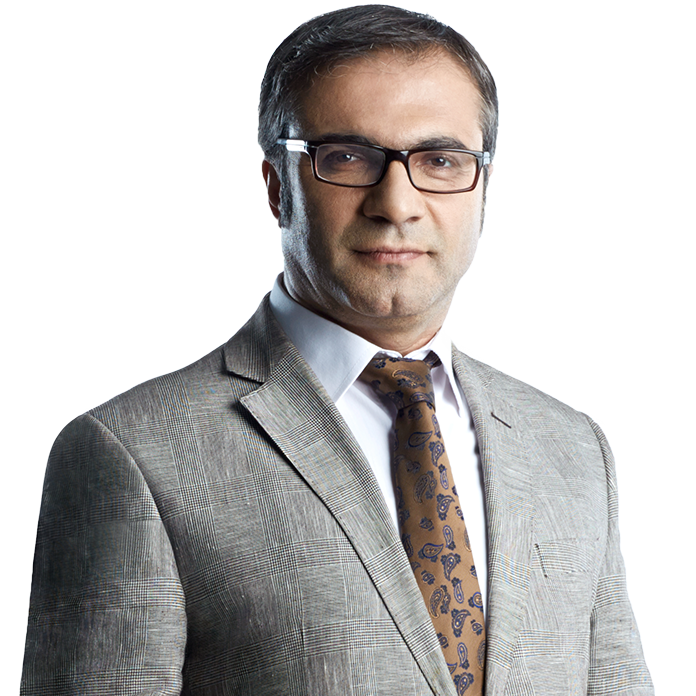Of course there is political scale to selecting statements made three years ago and bringing them up today and amassing certain weaknesses and mistakes of traditionalist approaches and presenting them to Turkey. This politics is closely related to the historic period Turkey is going through. Century-old Turkey is radically renewing its politics, and the main sociology carrying this out is composed of conservatives. Conservative actors are going through the struggle of establishing a new system. A year later, there will be a great will brought forward. While all this is ongoing, certain difficult positions, weaknesses and mistakes of imams, religious movements and groups are picked and brought up on the agenda. A discussion is being started through culture and religion.
Of course these discussions are important. It is continuing with modernization as well. The interpretation of religion, whether there is room for ijtihad (independent reasoning), the authority to represent the religion, reformation of the religion, renewal of the religion. Filibeli Ahmed, Elmalı, Mehmed Akif, Muhammed Abduh, Muhammed İkbal, Said Halim, Said-i Nursi, all discussed these matters with a very competent language and knowledge. It was the Second Chamber – i.e. the People’s Party (HP) hegemony – that ended this debate. The single-party regime first wanted to make a reform in religion, then it completely gave up religion. This is why it also eliminated the traditional structures. The Presidency of Religious Affairs, also known as Diyanet, was instituted as the official religious authority. It was restricted to merely keeping the mosques clean and giving sermons.
Now, as Turkey is re-establishing its system, two fronts are being opened at once: The first is to drag the conservatives into a debate among themselves and get the Diyanet to monopolize religious understandings. Hence, conservatives were now arguing among themselves.
These arguments are also continuing through the president. President Recep Tayyip Erdoğan’s leadership is opened to debate through religion. Conservative circles are differentiating more around traditionalism and reformism. Those who want to reform Islam through Fazlurrahman’s view seem to have taken charge. Some statements and actions of figures such as Cübbeli Ahmet, the leader of the Şabani movement, Nurettin Yıldız are used as the grounds to show how bad tradition is. As a matter of fact, they are used to put all tasawwuf and religious movements under suspicion. Everyone is placed in this category with a collective view. The traditionalist approaches that freeze history and Shariah are hitting the realities of today. So, does this mean that we are going to surrender to modernism or abandon Shariah? I think this question is a huge trap. Instead of this, we should turn toward revival in the modern period by protecting the essence of Shariah, or the principles of Islam. We should resort to the principle of renewal. As we mentioned earlier, our thinkers in the 19th century did this too. They were distant toward reformists like Abdullah Cevdet and Ziya Gökalp. Instead, they spend intensive time on topics such as revival, reform and renewal (I focus on this subject in my study titled “Islam Toplum Tahayyülü”). We will be doing the same today.
Both reformism and traditionalism are extinction for us. The first dissolves Islam within modernity, while the second confines it to history. As author Ahmet Hamdi Tanpınar beautifully states, “We are going to settle scores with tradition and reach an agreement with it.” We are going to use the same principle for modernity. In other words, we are going to settle scores with modernity and reach an agreement with it. This is what renewal means. It is to present an Islamic understanding that is “counterbalanced with the spirit of the [new] age” that we are now in. Imam al-Ghazali and Imam al-Rabbani did this and, as a matter of fact, the Naqshi Müceddidi ecole did the same in the modernity of the Ottoman Empire. Neither Fazlurrahman nor Sayyid Hussein al-Nasr is the right path for us. The “modern revival” movement (middle path/everyday ummah) that started with the Naqshi Müceddidi tradition was suspended at the beginning of the Republic. It should now continue on its path again. This is what Turkey’s Islamism (I call it Istanbul Islamism) is. Neither Cairo, nor Riyadh, nor Tehran, nor U.S. universities (remember that both Fazlurrahman and Nasr were staff at U.S. universities)…
Conservative politics should continue to play its historic role, and its leadership should not be worn with these internal discussions. We should not allow the “War within Islam” theory to be staged in Turkey. Do not forget, division starts first in the mind and soul. Meanwhile, the way to continue our existence at a time when we are facing attacks by modernity and capitalism is not to escape to the past or surrender to modernity. We cannot leave this matter to the monopoly of the Diyanet. Fetullah Terrorist Organization (FETÖ) leader Fetullah Gülen having spent his entire life as a civil servant under the Diyanet and defending the headscarf ban in mosques in 1989 is enough proof for this. As intellectuals, theologists and academics, we must continue the “modern revival” tradition that started in the 19th century.
We must continue the war, not within Islam, but against the structures that are an obstacle to Islam.




















